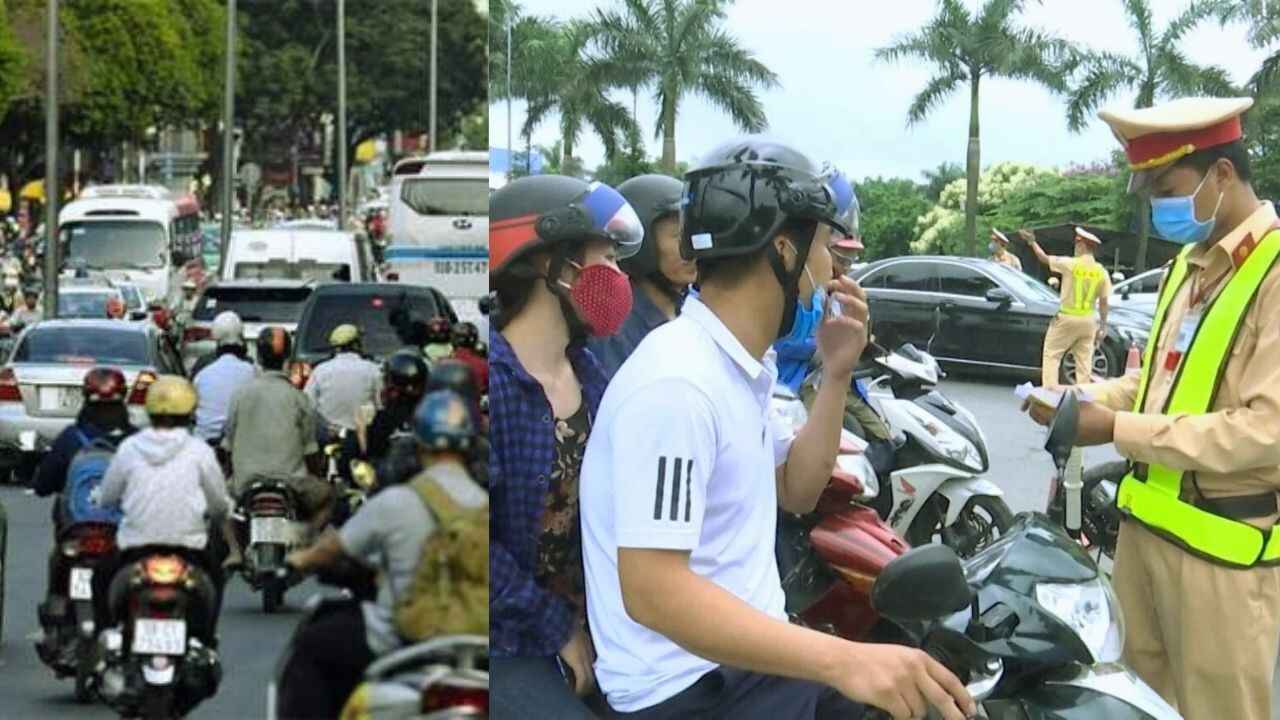Vietnam New Traffic Laws with Rewards for Reporting Violations
Vietnam has rolled out a significant update to its traffic laws effective January 1, 2024. The revised regulations aim to improve road safety and compliance by increasing fines for violations and involving the public in enforcement efforts.
A standout provision is the reward system, which allows citizens and organizations to earn up to $200 for reporting verified traffic violations. This innovative approach has sparked global discussions, particularly in India, where netizens have debated adopting similar rules.
Stricter Penalties for Traffic Violations
Under the new laws, fines for specific traffic violations have risen drastically, with penalties now set at 30 to 50 times higher than before. The intent is to deter reckless driving, drunk driving, speeding, and other dangerous behaviors that contribute to accidents. By imposing harsher fines, Vietnam seeks to create a culture of accountability and responsible driving.
One of the most talked-about aspects of the reforms is the reward program, which encourages citizens to actively monitor and report traffic offenses.
Individuals and organizations can claim a reward capped at 10% of the administrative fine, with a maximum payout of $200 per report. This initiative aims to harness public participation to enhance traffic order and safety.
The Vietnamese government believes involving the community will improve law enforcement efficiency and instill a sense of shared responsibility. According to a report by VietnamNet, this strategy is part of a broader effort to make roads safer through collective vigilance.
The announcement of Vietnam’s policy quickly went viral on social media in India. Prominent economist and Niti Aayog member Arvind Virmani endorsed the idea, suggesting India should adopt similar measures for major traffic offenses such as wrong-way driving and jumping red lights.
Several Indian netizens humorously pointed out that implementing such a system in India could turn many citizens into millionaires, given the frequency of violations. Others called it the “hottest job in Vietnam,” highlighting the financial potential for diligent reporters.
However, skepticism also emerged. Some noted Vietnam’s chaotic traffic conditions, questioning whether enforcement mechanisms would be effective.
Observers who visited Vietnam described its roads as often operating like free-for-all zones, where traffic rules were loosely followed. This prompted debates on whether cultural differences in traffic behavior would affect the system’s success elsewhere.
India’s Existing Traffic Violation Reporting System
While Vietnam’s policy grabbed attention, some netizens pointed out that India already has reward systems for reporting traffic violations, though they may not be widely publicized. For instance:
- Delhi operates the Traffic Prahari app, offering rewards up to Rs 50,000 for top monthly contributors.
- Goa provides reward points for reporting violators.
Despite these programs, the Indian systems lack the uniformity and higher payout structure seen in Vietnam, prompting calls for broader implementation and awareness campaigns.
Benefits and Challenges of Public Reporting Systems
Pros:
- Improved Compliance: Financial incentives motivate people to follow rules and monitor violations.
- Increased Accountability: Encourages collective responsibility for road safety.
- Enhanced Enforcement: Reduces reliance on traffic police, leveraging public participation.
Cons:
- Privacy Concerns: Reporting might lead to misuse or harassment.
- False Reports: Verifying the authenticity of claims may strain resources.
- Cultural Adaptation: Implementation may face resistance in regions where traffic norms are less regulated.
Lessons for India and Other Countries
Vietnam’s model offers valuable lessons for countries like India, where traffic violations are widespread. To implement a similar system effectively, the following steps are suggested:
- Awareness Campaigns: Promote existing reporting programs to increase participation.
- Stronger Verification Mechanisms: Ensure claims are genuine to prevent abuse.
- Higher Rewards for Major Offenses: Introduce tiered incentives based on the severity of violations.
- Tech Integration: Develop user-friendly apps to streamline reporting and evidence submission.
Vietnam’s bold traffic law reforms, including higher fines and rewards for reporting violations, reflect a proactive approach to road safety.
While some view it as an innovative and effective policy, others remain skeptical about its applicability in different cultural contexts. The viral discussion, particularly in India, highlights the need for exploring similar systems to improve traffic management.
As countries grapple with traffic-related challenges, Vietnam’s model may inspire global reforms, encouraging accountability and public participation in road safety initiatives.
Whether such measures can be implemented seamlessly elsewhere remains to be seen, but they undoubtedly open the door to fresh solutions for longstanding problems.

China HMPV Outbreak Overwhelms Hospitals Asia on high Alert
China HMPV Outbreak Strains Healthcare Systems Across Asia In recent weeks, China has witnessed a significant surge in cases of human metapneumovirus (HMPV), a respiratory virus that primarily affects children but can infect individuals of all ages. This uptick has led to overcrowded hospitals and heightened concerns about the virus’s spread to neighboring Asian countries. …

